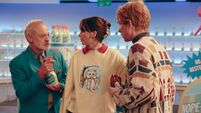Isabella Rossellini talks about her relationship with her mother, Ingrid Bergman

ONE of my first movie interviews ever was with Isabella Rossellini on the Berlin set of the 1993 film, The Innocent, John Schlesinger’s adaptation of Ian McEwan’s novel. Somehow the actress, who at the time was the spit of her mother, Ingrid Bergman, misconstrued my question and believed I thought Bergman was still alive. She became ruffled.
All too conscious of living in her parents’ shadows — her father was Italian director Roberto Rossellini — she wasn’t used to giving interviews and rarely granted them.











